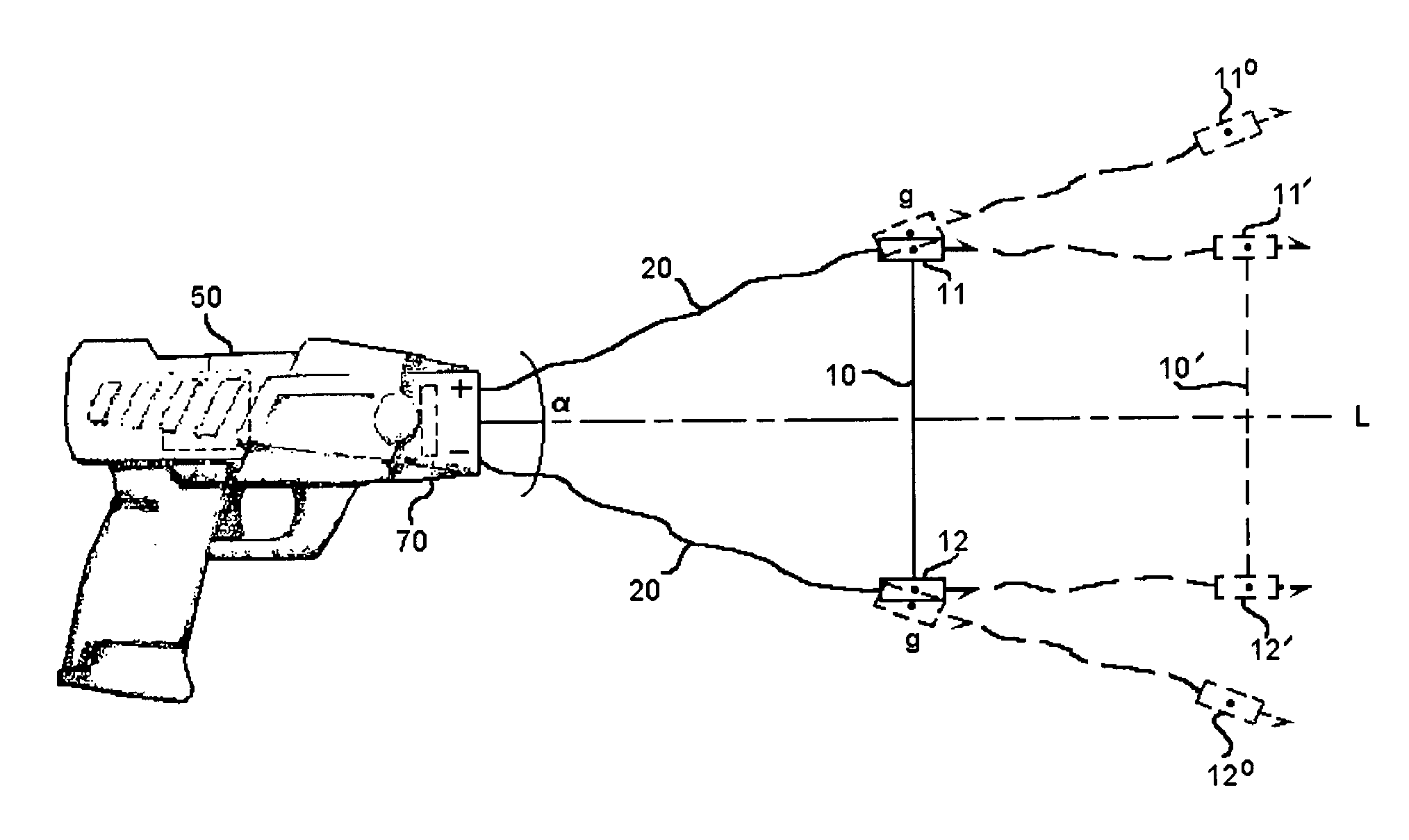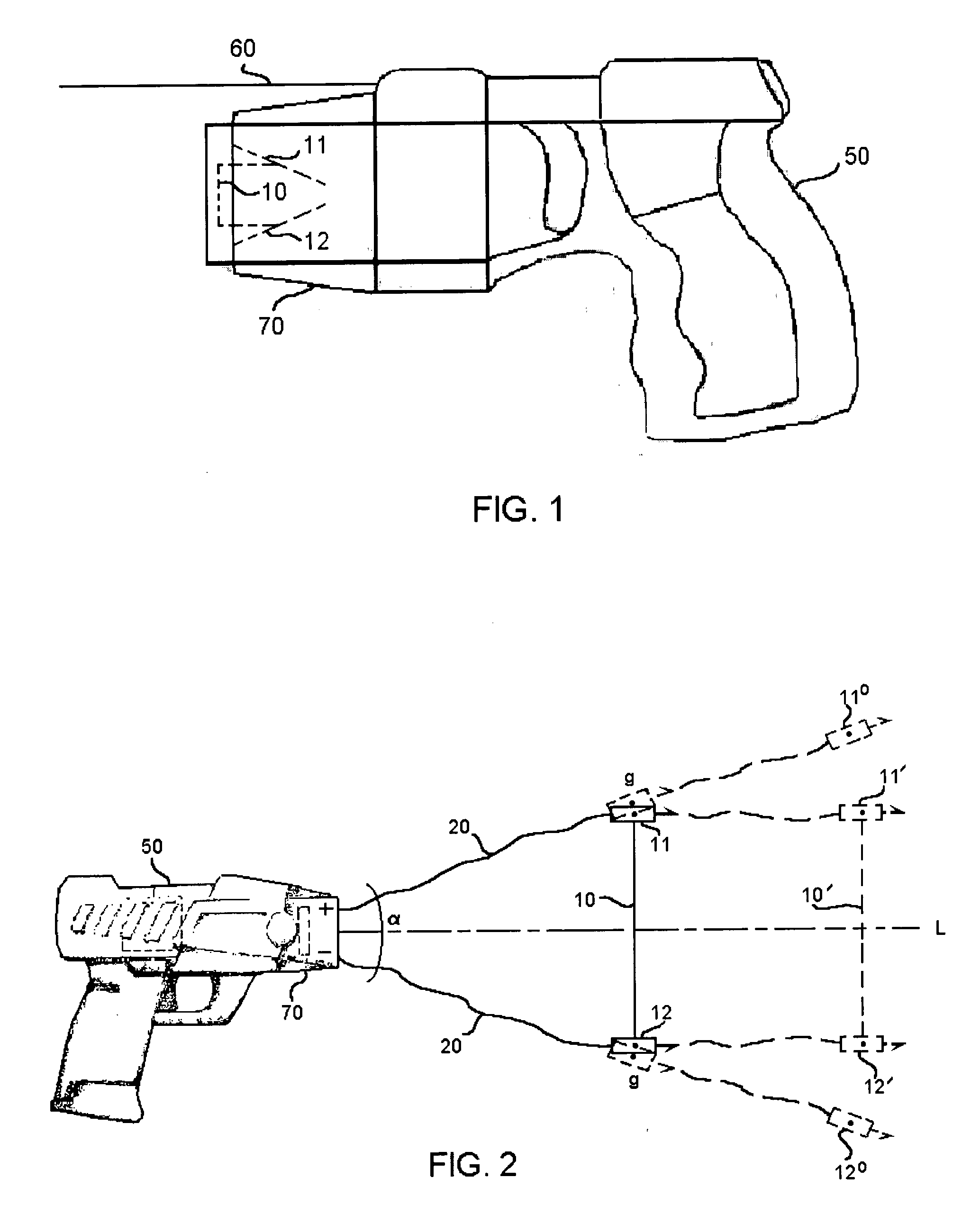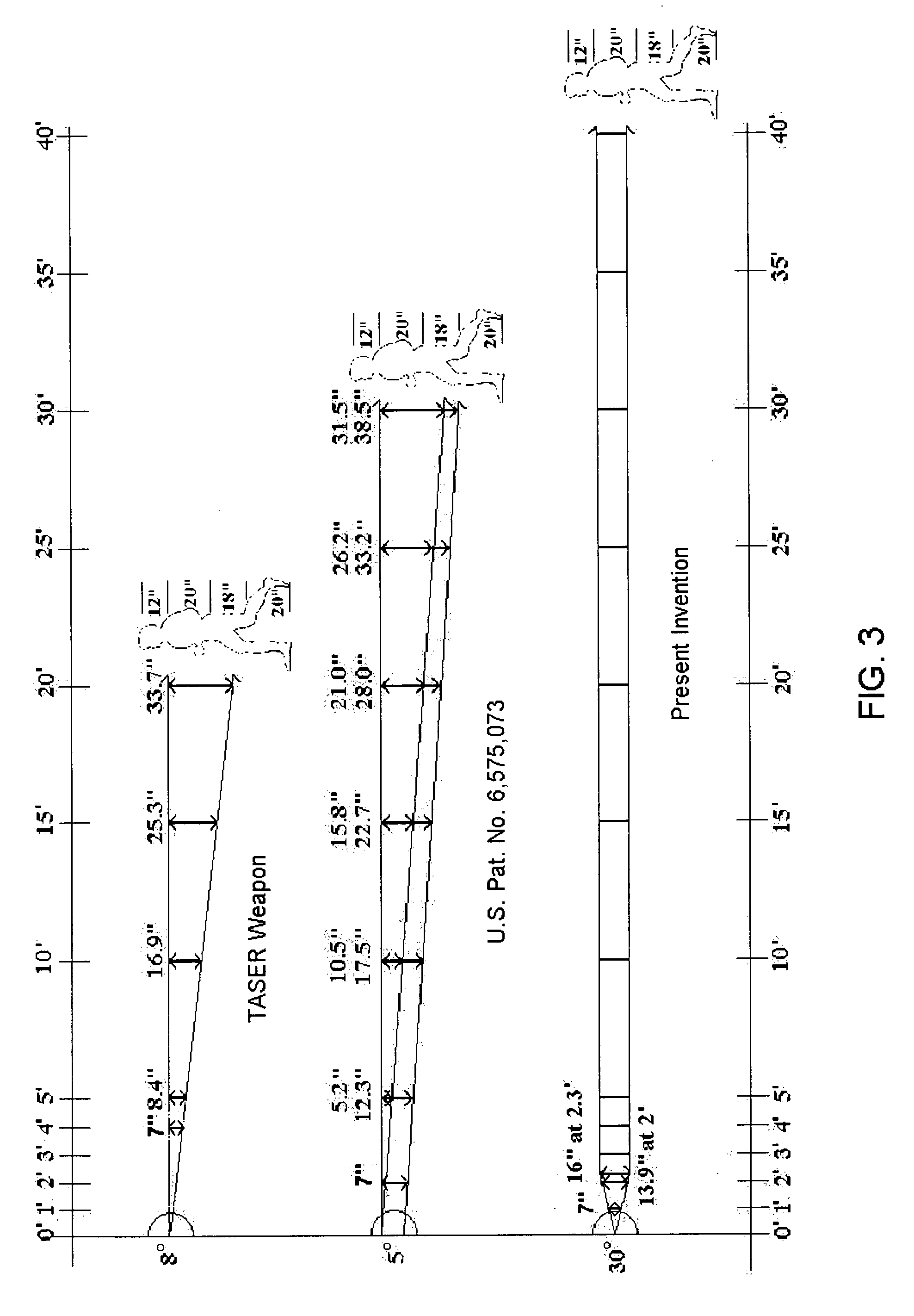Electrical immobilization weapon
a technology of immobilization weapon and electric field, which is applied in the direction of weapons, white arms/cold weapons, small arms, etc., can solve the problems of increasing the spread of projectiles for improving effectiveness, increasing the risk of projectiles missing the target, and reducing the incapacitating efficiency. , to achieve the effect of reducing the vibration of the projectile, reducing the target point, and increasing the efficiency
- Summary
- Abstract
- Description
- Claims
- Application Information
AI Technical Summary
Benefits of technology
Problems solved by technology
Method used
Image
Examples
Embodiment Construction
[0032] Referring now to FIG. 1, there is provided an outlined illustration of an electrical immobilization weapon in conjunction with a preferred embodiment of the present invention, which mainly comprises a body section (50) and at least one cartridge apparatus (70). In this case the cartridge is inserted. The weapon utilizes a type of high-tension power supply (not shown) which could be any suitable power supply already known to the art. The single cartridge in this case contains two projectiles (11, 12) along a vertical plane of the cartridge (70) as shown with dotted lines. A single filament or thread (10) is interconnected to the two projectiles (11, 12) to form a kinetic unit, which can be launched by a common propellant. The said propellant could be any suitable types commercially available, for examples spring devices, compressed air, compressed CO2, explosive or pyrotechnic. The weapon can be designed to be single or multiple fired. Because of its compact size, other access...
PUM
 Login to View More
Login to View More Abstract
Description
Claims
Application Information
 Login to View More
Login to View More - R&D
- Intellectual Property
- Life Sciences
- Materials
- Tech Scout
- Unparalleled Data Quality
- Higher Quality Content
- 60% Fewer Hallucinations
Browse by: Latest US Patents, China's latest patents, Technical Efficacy Thesaurus, Application Domain, Technology Topic, Popular Technical Reports.
© 2025 PatSnap. All rights reserved.Legal|Privacy policy|Modern Slavery Act Transparency Statement|Sitemap|About US| Contact US: help@patsnap.com



